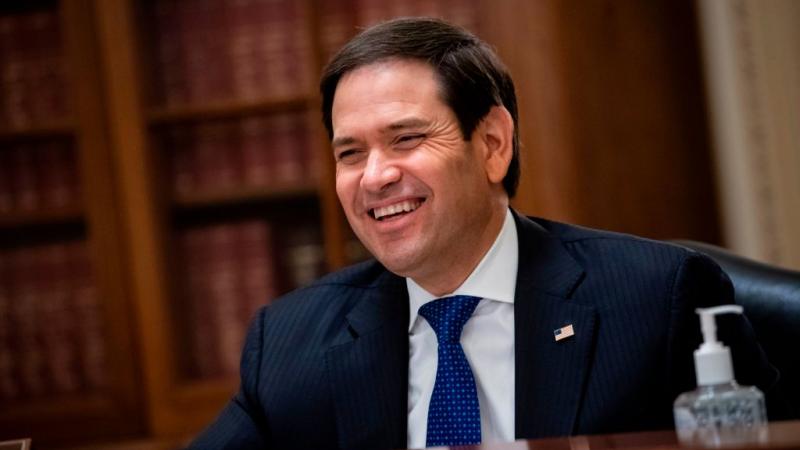Trump appointee sues federal oversight body alleging 'retaliatory' probes
Council of the Inspectors General on Integrity and Efficiency and its Integrity Committee are unconstitutionally structured, lawsuit claims.
The Department of Homeland Security's inspector general and his career staff are suing an executive branch entity, alleging it tried to destroy them financially for exposing and unprecedented "level of dysfunction and dishonesty" inside the agency.
The lawsuit filed in U.S. District Court in the Virginia suburbs of Washington D.C. alleges workers were subjected to a "Kafkaesque system" of retribution, and that one federal official even joked about assassinating the current Homeland Security inspector general's predecessor.
Inspectors general were created in the aftermath of Watergate to work as independent watchdogs to police for waste, fraud and abuse inside large federal agencies and Cabinet departments. The independent watchdogs have their own oversight body called the Council of the Inspectors General on Integrity and Efficiency.
That Council and its Integrity Committee launched an endless barrage of "vexatious" investigations prompted by more than 50 "retaliatory complaints" against Senate-confirmed Trump administration appointee Joseph Cuffari alone, according to the New Civil Liberties Alliance, which files legal challenges against federal agencies.
The probes interfered with Cuffari and his staff's independence and forced them "to spend thousands in attorney fees to defend themselves against baseless charges surrounding their official actions," the group said. All were required to "rebut the presumption" of guilt, the suit added.
They are "enmeshed in an unjust, Kafkaesque system produced by an unconstitutionally structured entity and abetted by a complete absence of independent oversight, accountability and lawful due process," the lawsuit alleges.
The suit paints a picture of a DHS inspector general's office at odds with the oversight body's reluctance to police far worse allegations against an Obama administration appointee who ultimately resigned, taking 18 months to complete a probe into whistleblower retaliation and hostile environment allegations first raised in 2017.
NCLA is representing Cuffari, his chief of staff Kristen Fredricks and chief counsel James Read, and retired federal corruption investigator James Gangloff. Cuffari is a political appointee, while the latter three are career civil servants in the Senior Executive Service directly below presidential appointees.
The council and committee, created by the Inspector General Reform Act of 2008, are unconstitutionally funded and violate the appointments clause because their membership is not universally appointed by or answerable to the president, NCLA said in a press release.
The Integrity Committee members include Amtrak IG Kevin Winters and Corporation for Public Broadcasting IG Kimberly Howell, while the council's immediate past chair Allison Lerner, the National Science Foundation's IG, is also not presidentially appointed and Senate-confirmed.
The "lack of oversight and unconstitutional structure" of the Integrity Committee "have enabled it to weaponize investigations to sidetrack an entire IG office indefinitely," the civil liberties group said.
Even if it could exercise valid power over Cuffari's office, the Integrity Committee acts as a "Super IG" that "claims the unlimited power to commandeer documents from any agencies including those sent to Congress … which raises serious separation of powers concerns," the suit alleged.
Council Executive Director Alan Boehm told Just the News it was aware of the suit and "we look forward to working with the Department of Justice on this matter."
Cuffari stirred controversy soon after his July 2019 arrival by commissioning an external investigation of his office, in consultation with House and Senate homeland security committees and Office of Management and Budget, based on "multiple credible allegations of misconduct by senior DHS OIG officials" that the Integrity Committee refused to investigate, the suit alleges.
The resulting Wilmer Hale report in December 2020, made public with extensive redactions through a Freedom of Information Act request by The Intercept, fingered a trio of unnamed officials in Cuffari's office who "retaliated against anyone whom they believed stood in their way or was perceived as disloyal."
NCLA's suit alleges "the IC has continuously and relentlessly tormented" Cuffari going back to "a mere six weeks" after his confirmation, unlawfully denied Read the ability to "properly represent" his office and subjected Fredricks to "unconstitutional processes and threats" after she sought information on the Integrity Committee process.
It subjected Gangloff, its former counsel who also served in the Justice Department, Office of Government Ethics and Social Security Administration, to its "unlawful processes" even after his 2019 retirement, the suit claims, threatening him with sanctions even though Gangloff no longer had access to documents to defend himself.
The investigation into Fredricks for allegedly revealing a whistleblower's name ended with "no adverse findings" but denied her access to a DHS staff attorney based on the IC's "routine" and "unilateral, unappealable, and prejudicial" designation of the charge as "personal capacity," NCLA argues in the lawsuit.
Though her counsel was covered by the "professional insurance" she purchased upon joining the office, Fredricks later had to shell out $4,000 of her own money for counsel during another "personal capacity" interview about the awarding of the Wilmer Hale contract.
She and Cuffari were next dragged into an Integrity Committee investigation of deleted Secret Service text messages regarding the Jan. 6 Capitol riot "despite the fact that no one in the DHS OIG has any control over the Secret Service or over where texts by members of that organization go," and even if they did it would be "agency action," the suit says.















